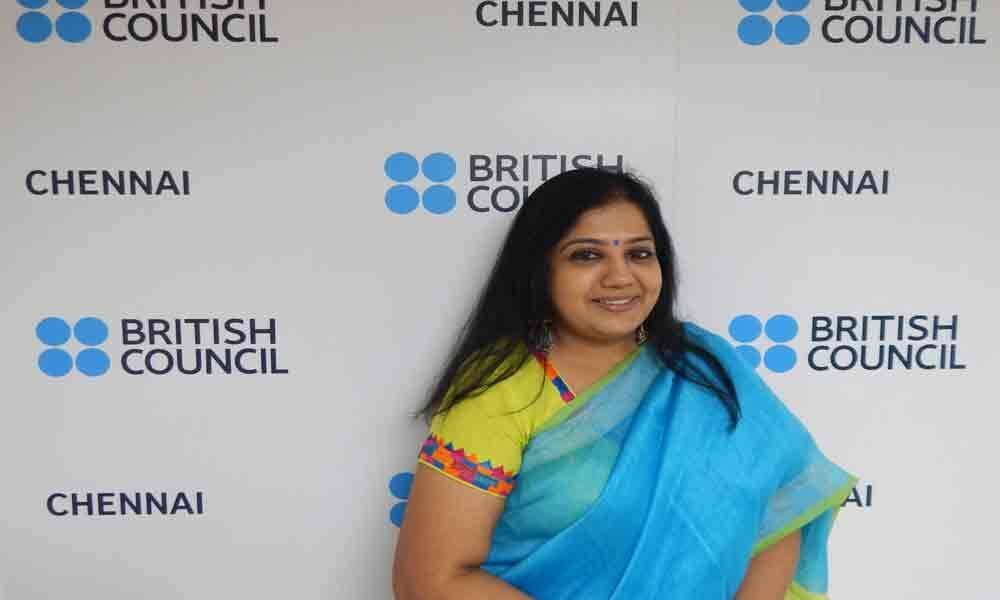Live
- India set to become developed nation by 2047: Haryana CM
- Allu Arjun’s house attacked by protesters demanding compensation for the stampede victim
- Several Gulf countries impose visa ban on Pakistanis over their involvement in crime, fraud and begging
- Public outrage in Jharkhand's Giridih over murder, police station gheraoed
- Santosh Trophy: Meghalaya edge Goa 1-0 to secure QF berth
- Army's swift action prevented Kolkata fire from spreading: Defence Ministry
- State Police tried to murder Ravi- Union minister
- FDI flow into India from Gulf countries surges to $24.54 bn in 12 years
- BBL: McSweeney hits fiery 78 to guide Heat to thrilling win after Australia snub
- 'Exceptional case..': Delhi HC orders revision of CLAT-2025 results
Just In
Developing 21st century skills a life long process


Excerpts: 1. What do you think are the critical skills required for children to do well in the 21st century? 21st Century Skills are a set of...
Excerpts:
1. What do you think are the critical skills required for children to do well in the 21st century?
21st Century Skills are a set of cognitive abilities and behavioral practices which are required for academic success as well as a successful professional life. The skill sets are a combination of life skills, digital skills and learning skills.
Life skills include flexibility and adaptability, initiative and self-direction, responsibility and leadership and accountability. Digital literacy skills include media and information literacy. And of course, there are the 4 C's of learning – creativity and innovation, communication, collaboration, critical thinking and problem solving. It becomes imperative for children to develop these skill sets which ready them for workplace success and allow them to become effective global citizens.
It stands to reason that children who display these traits and skill sets are more effective and better equipped to deal with the opportunities and challenges presented in professional and social life. Children who have imbibed these skills early in life are better able to solve problems, make decisions, think critically, communicate ideas effectively and work well within teams and groups.
The British Council Summer Programme is designed in a manner that helps children to develop and improve these skills, in particular confidence and communication skills, through fun and interactive lessons.
British Council's Summer Programme 2019 is based on an innovative, unique and experiential learning methodology which is task-based and where lessons have an element of fun and interactivity. These crucial life skills will help children become the artists, storytellers, and leaders of tomorrow.
2. Given the cultural diversity and economic disparities, what could be a one-stop approach for children to improve their skill sets?
Developing 21st century skills is a lifelong process and there is no one stop approach to it. However, the internet is a great tool which can help children and adults alike develop most of these skills. In particular, the digital literacy and communication skills can definitely be developed via the internet.
The British Council uses the internet to give access to people via apps and online material. For example anyone can improve their English language skills by accessing British Council MOOC and its mobile apps like LearnEnglish Grammar, Timmy's First Words in English and LearnEnglish with Jonny's Grammar Word Challenge. The internet gives access to vast amounts of information and is also an important tool in aiding collaboration and teamwork. However, children should be taught how to filter credible and unreliable information, online.
The British Council's Summer Programmer's differentiated methodology focuses on making learning fun while laying the foundation for children's lifelong learning journey. Children are given exciting projects and tasks to match their developmental age, to develop essential life skills such as leadership, critical thinking, problem-solving, working together and communication, creativity and imagination
3. How are Indian children uniquely placed in succeeding once they acquire such skill sets?
As a culture, India is in the middle of transformation between our traditional values and modern values. Therefore, Indian children end up adopting the best of both worlds. Traditionally, we value collaboration and consensus, which is a much needed skill set for professional success.
Children who are taught to communicate, collaborate and be flexible – all the values that Indian children are taught, will be more effective team members and leaders. At the same time, we also place a high premium on the values of learning and achievement. Inherent in these two values is the ability to take responsibility, assume leadership and accountability and of course problem solving and critical thinking.

© 2024 Hyderabad Media House Limited/The Hans India. All rights reserved. Powered by hocalwire.com






